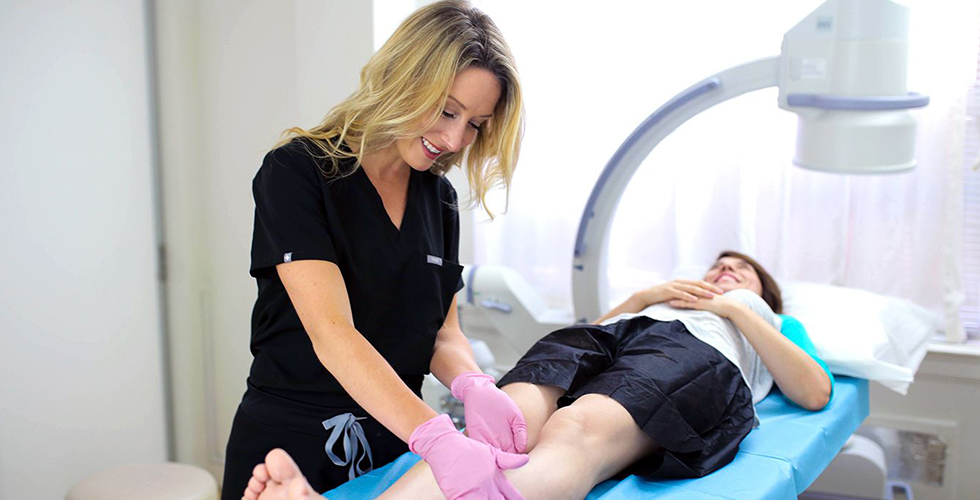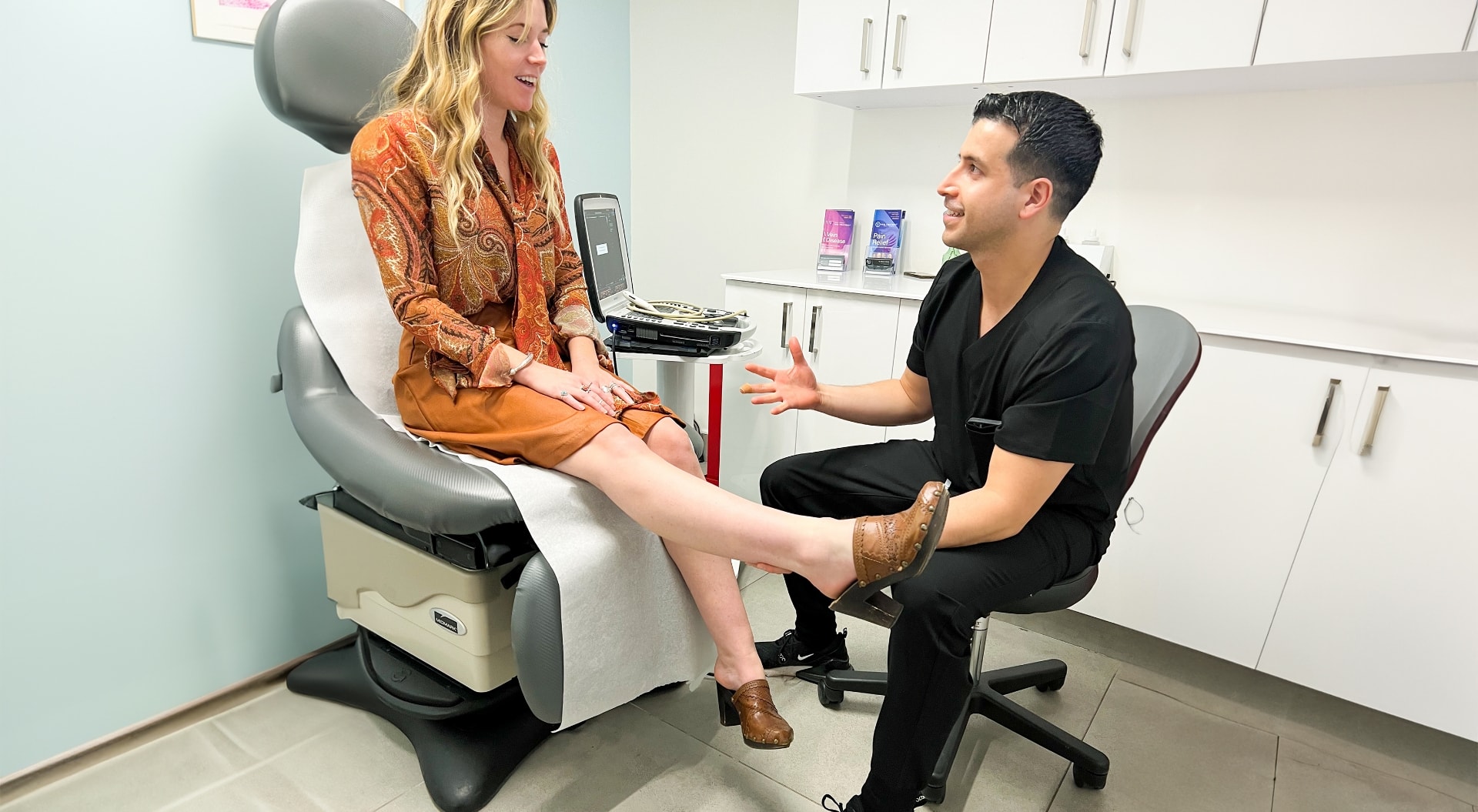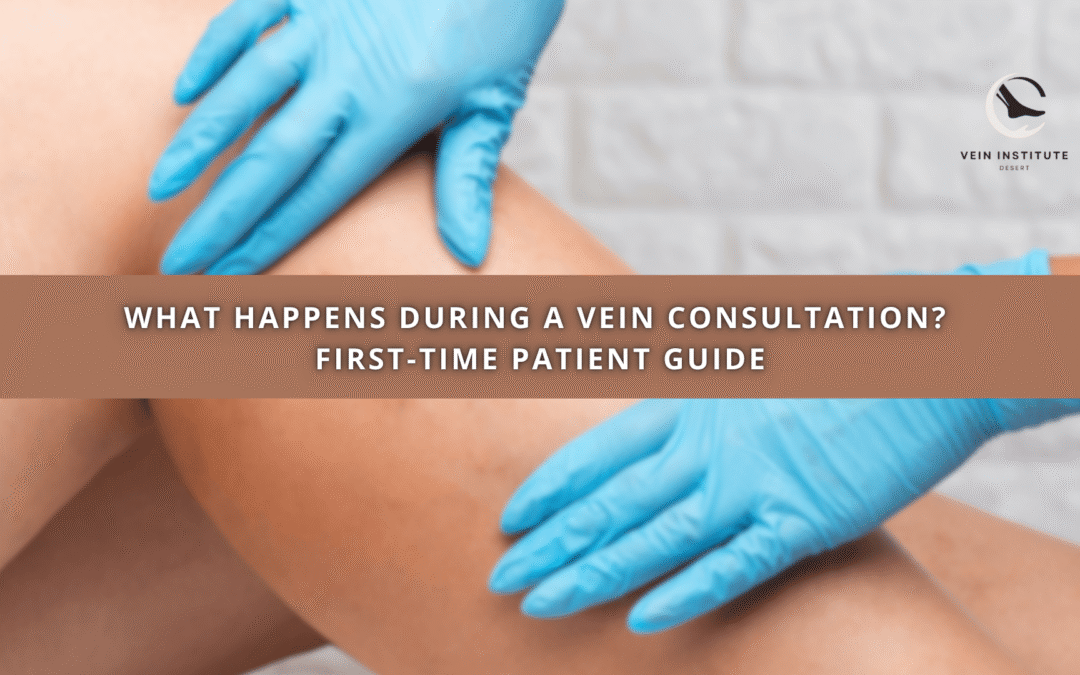What to Expect at a Vein Consultation

Visiting a vein doctor for the first time can feel overwhelming, especially if you’re unsure about what to expect during your consultation. Whether you're dealing with varicose veins, spider veins, or other circulation-related issues, understanding the consultation process can help ease your nerves and prepare you for the visit.
The Initial Consultation Process
The first step in any vein consultation is to discuss your medical history. Your vein expert will ask detailed questions about your symptoms, lifestyle, family history, and any past treatments you may have undergone for vein issues. This helps the specialist understand your condition better and tailor the treatment options that would be most effective for you.
During the initial conversation, your vein doctor may ask about the following:
- When did you first notice your symptoms?
- Do you experience pain, swelling, or heaviness in your legs?
- Have you had any prior treatments or surgeries for vein problems?
- Is there a family history of vein conditions, such as varicose veins or deep vein thrombosis (DVT)?
By answering these questions, the specialist can assess the extent of your condition and create a personalized treatment plan.
The Physical Exam
After discussing your medical history, the vein expert will perform a physical exam. This involves closely examining the affected areas to assess the size, color, and location of any varicose veins or other visible vein issues. You may be asked to stand and change positions so that the doctor can better observe how the veins respond to gravity.
The exam also involves checking for signs of complications, such as swelling, skin changes, or the presence of ulcers. The doctor will also assess your circulation by feeling for pulses in your legs and feet. This helps determine whether you have any underlying circulation problems or other conditions that could affect the treatment options.
Diagnostic Imaging
In many cases, vein specialists will use ultrasound imaging to get a clearer view of the veins beneath the skin. This non-invasive test helps the doctor evaluate the blood flow in your veins and identify any blockages, reflux (backward flow of blood), or damaged veins. Ultrasound is a key tool in diagnosing conditions such as chronic venous insufficiency (CVI) and deep vein thrombosis (DVT), which may not always be visible during a physical exam.
The ultrasound exam is quick, painless, and can provide invaluable information that will guide the doctor in recommending the most appropriate treatment for your condition.
Treatment Discussion
Once the exam and diagnostic tests are complete, the Phlebologist will discuss the treatment options available. Depending on the severity and type of vein issue you’re dealing with, there are a variety of solutions that can be considered. These treatments can range from conservative measures like compression stockings to minimally invasive procedures like sclerotherapy or endovenous laser treatment (EVLT).
Vein specialists typically offer a range of treatment options, including:
- Compression therapy: Wearing compression stockings to reduce swelling and improve blood flow.
- Sclerotherapy: A procedure where a solution is injected into the vein to cause it to collapse and fade over time.
- Laser treatments: Laser energy is used to close off varicose veins without the need for incisions.
- Endovenous laser treatment (EVLT): A laser catheter is inserted into the vein to seal it shut, allowing the body to naturally reroute blood flow to healthier veins.
The doctor will explain the pros and cons of each option, along with the expected results, risks, and recovery times. This is also the time to ask any questions about the procedure, the duration, and whether any follow-up visits are necessary.
Questions You May Be Asked
To ensure you’re well-prepared, here are some common questions a Phlebologist might ask during the consultation:
- How long have you had symptoms like swelling, pain, or heaviness in your legs?
- Have you noticed any changes in the appearance of your veins, such as bulging or discoloration?
- Do you have a history of blood clots or other vascular conditions?
- Are you experiencing any difficulty walking or standing for long periods?
Answering these questions will give the doctor a better understanding of your condition and help determine the best course of action.
How to Prepare for Your Consultation

Preparation is key to getting the most out of your vein clinic consultation. Here’s what you can do beforehand:
- Wear comfortable clothing: It’s helpful to wear loose, comfortable clothing, especially if you need to expose your legs for the exam.
- Bring a list of medications: Include all medications and supplements you’re currently taking.
- Note any symptoms: Write down symptoms like pain, swelling, or visible veins, and how long you’ve had them.
- Prepare questions: Note any concerns you have about treatment options, recovery, or pricing.
The Importance of a Follow-Up Appointment
Depending on the treatment recommended, a follow-up visit may be necessary to monitor your progress and ensure that your veins are healing as expected. During these follow-ups, the vascular surgeon will assess your response to treatment and may suggest additional procedures or adjustments to your care plan.
Some treatments, such as sclerotherapy, may require multiple sessions, while laser treatments often provide immediate results with little downtime. The doctor will guide you through the recovery process and offer tips to maximize your results.
Benefits of Early Consultation
Seeking care early in the development of vein problems can prevent further complications. Delaying treatment can lead to worsening symptoms, including pain, swelling, and the development of more severe conditions like ulcers or blood clots. By addressing vein issues early with the help of a vascular surgeon, you can experience relief from symptoms, prevent long-term complications, and improve the overall health of your legs.
If you’ve been noticing signs of vein issues, don’t hesitate to schedule a consultation at a vascular center. An early diagnosis and treatment plan can make all the difference in managing your vein health and achieving a better quality of life.
Andy Sharifi
Position
